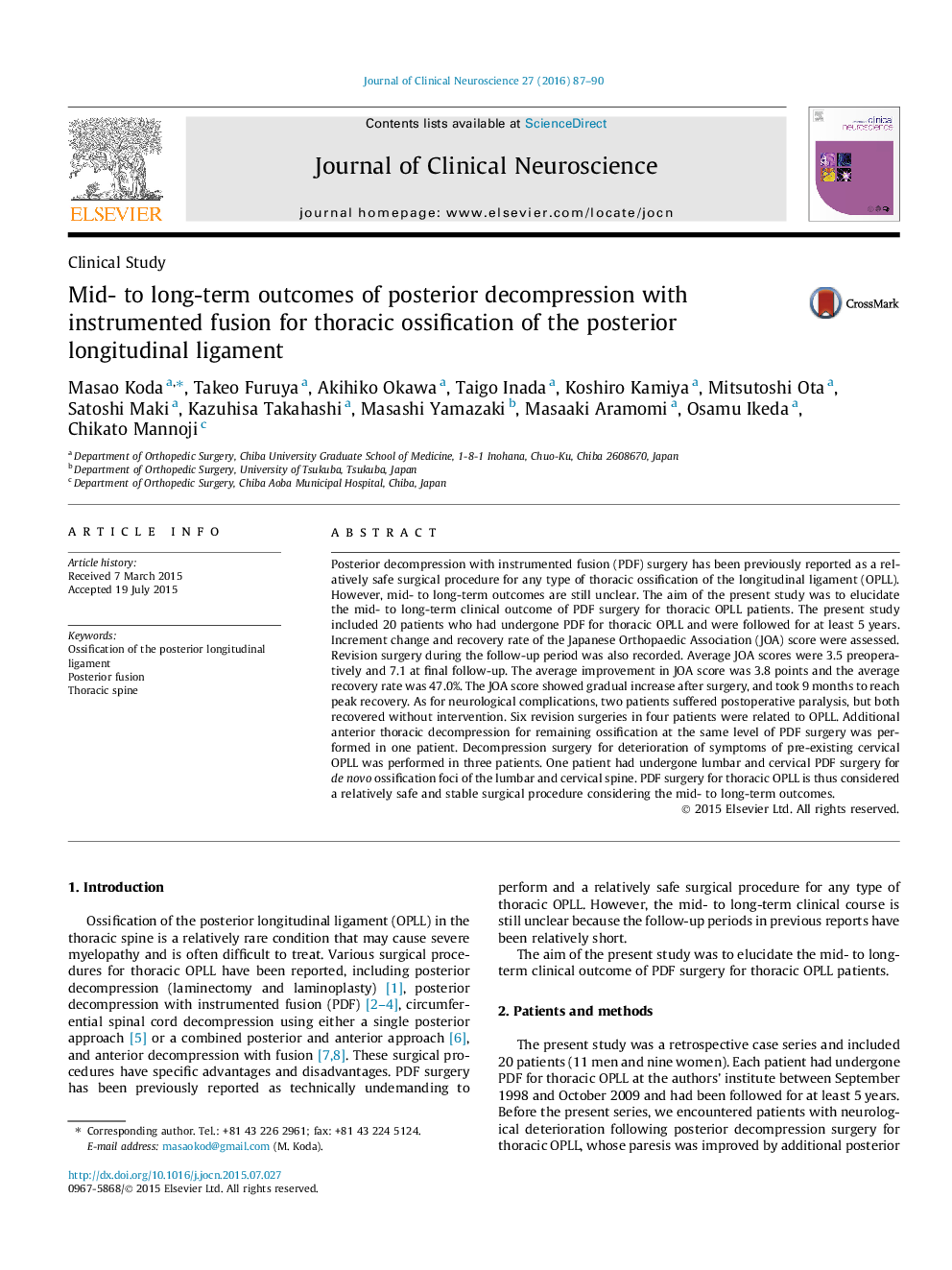| Article ID | Journal | Published Year | Pages | File Type |
|---|---|---|---|---|
| 3058242 | Journal of Clinical Neuroscience | 2016 | 4 Pages |
Abstract
Posterior decompression with instrumented fusion (PDF) surgery has been previously reported as a relatively safe surgical procedure for any type of thoracic ossification of the longitudinal ligament (OPLL). However, mid- to long-term outcomes are still unclear. The aim of the present study was to elucidate the mid- to long-term clinical outcome of PDF surgery for thoracic OPLL patients. The present study included 20 patients who had undergone PDF for thoracic OPLL and were followed for at least 5Â years. Increment change and recovery rate of the Japanese Orthopaedic Association (JOA) score were assessed. Revision surgery during the follow-up period was also recorded. Average JOA scores were 3.5 preoperatively and 7.1 at final follow-up. The average improvement in JOA score was 3.8 points and the average recovery rate was 47.0%. The JOA score showed gradual increase after surgery, and took 9Â months to reach peak recovery. As for neurological complications, two patients suffered postoperative paralysis, but both recovered without intervention. Six revision surgeries in four patients were related to OPLL. Additional anterior thoracic decompression for remaining ossification at the same level of PDF surgery was performed in one patient. Decompression surgery for deterioration of symptoms of pre-existing cervical OPLL was performed in three patients. One patient had undergone lumbar and cervical PDF surgery for de novo ossification foci of the lumbar and cervical spine. PDF surgery for thoracic OPLL is thus considered a relatively safe and stable surgical procedure considering the mid- to long-term outcomes.
Related Topics
Life Sciences
Neuroscience
Neurology
Authors
Masao Koda, Takeo Furuya, Akihiko Okawa, Taigo Inada, Koshiro Kamiya, Mitsutoshi Ota, Satoshi Maki, Kazuhisa Takahashi, Masashi Yamazaki, Masaaki Aramomi, Osamu Ikeda, Chikato Mannoji,
